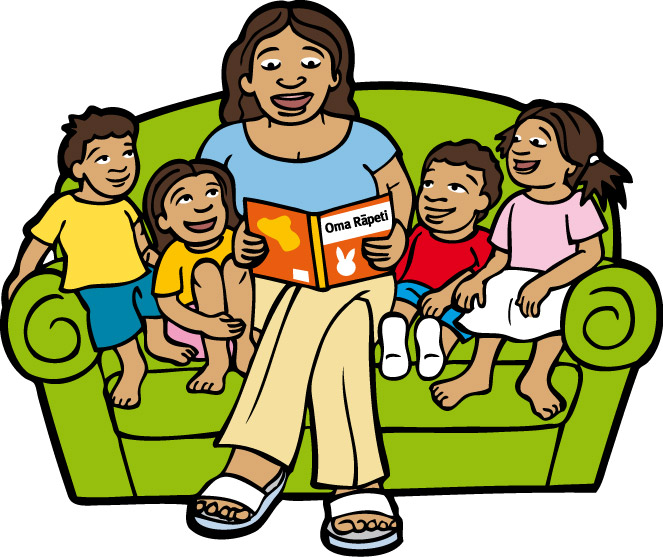Sleep Well, Be Well | Marie Reynolds

“Sleep is the underpinning of our entire well-being. For centuries people thought that sleep was a time of inactivity that the brain was resting. But all the new science proves that the opposite is true — that during sleep the brain is in a state of intense activity, which is necessary for us to fully recharge and be productive, creative and truly connect with ourselves and others during the day.” ~ Arianna Huffington, formerly of The Huffington Post and author of The Sleep Revolution: Transforming Your Life, One Night at a Time
Every year on the third Friday of March we honor the active, important process of Sleep on World Sleep Day. In 2018 the theme was Join the Sleep World, Preserve Your Rhythms to Enjoy Life, focused on the importance of circadian rhythms in healthy sleep.
What are circadian rhythms?
The word circadian originates with the word cycle. No doubt you’re familiar with the term menstrual cycle. Well our bodies have other cycles as well: rhythms in body temperature, hormone levels and how alert we are; these are circadian rhythms. They are produced by biological clocks within our bodies. Environmental factors such as sunlight, artificial light and the blue light from TV and electronic device screens can also affect them.
Following our bodies natural rhythms is important for our physical, mental and sleep health. Unfortunately, our modern, heavily scheduled, technologically crammed lifestyle is anything but natural. Even our children may go to bed at varying times depending on the time we are able to get them home, and how much homework or other activities are on their plates. The morning commute, and an early start to the school day mean having to get them up at the crack of dawn, often with a fight because the schedule has disrupted their circadian rhythm.
Creating a Sleep Schedule
A regular schedule, including having a set bedtime and wake-up time is important for overall health and sound sleep—one of the three pillars of good health, along with a balanced diet and healthy exercise. Sleep, like exercise and nutrition, is essential for good metabolic regulation in children. Lack of sleep or poor quality sleep is known to have a significant negative impact on health in the long and short term. There is evidence of a link between length of sleep and childhood obesity— most apparent in girls— due to the effect of day-to-day variability of sleep-wake timing on weight regulation. The sleep chart below outlines the average length of sleep needed at various ages and stages of life (Courtesy of http://www.sleepaidresource.com/sleep-chart.html ).
SLEEP CHART BY AGE |
||
| Age |
Total Sleep Needed |
Additional Notes |
| 1-4 Weeks | 15-16 Hours | Newborns are developing their internal biological clocks |
| 1-4 Months | 14-15 Hours | Regular sleeping patterns begin and longer night sleeping |
| 4-12 Months | 14-15 Hours | Important to establish regular sleeping patterns at this time |
| 1-3 Years | 12-14 Hours | Naps remain important to sleep health |
| 3-6 Years | 10-12 Hours | Naps will become shorter |
| 7-12 Years | 10-11 Hours | Bedtime gets later |
| 12-18 Years | 8-10 Hours | Teens may need more sleep |
| Adults | 7-8 Hours | Times will greatly vary |
Quality of sleep is just as crucial as length of sleep. Believe it or not, some of the most important work that your child’s brain can do for their intellectual, emotional and physical well-being takes place while your child is asleep! Breathing regularly during sleep is critical to maintaining well-being and health. One of the most common issues affecting children’s sleep is poor breathing due to issues such as enlarged adenoids, sleep apnea (the interruption of the breathing function during sleep), sinusitis, and even nasal allergies. If you think your child may be affected, consult your doctor for referral to an appropriate specialist.
Whatever the cause, poor quality sleep may have a negative effect on your child’s attention span, memory recall, and learning. Behaviors and emotions are also affected. For example, some children suffering from poor quality sleep show symptoms that mimic ADHD. Regular, quality and restorative sleep may just be the prescription for your child’s irritability, hyperactivity, moodiness, or anxiety.
The bottom line is that healthy sleep will improve children’s overall wellness and development. The World Sleep Society has created the 10 Commandments of Sleep Hygiene for Children [Ages birth to 12 years] (See below) The number one tip for good sleep health is establishing a nightly bedtime routine that could include:
BEDTIME ROUTINE
- Have a light snack
- Take a bath or have a warm shower
- Put on pajamas
- Brush teeth
- Read a bedtime story
- Say prayers
- Make sure the room is quiet and at a comfortable temperature
- Tuck child in bed
- Say goodnight and leave
Here are all ten of the 10 Commandments of Sleep Hygiene for Children:
10 Commandments of Sleep Hygiene for Children
- Go to bed at the same time every night, preferably before 9:00PM.
- Have an age-appropriate nap schedule.
- Establish a consistent bedtime routine.
- Make your child’s bedroom sleep conducive – cool, dark, and quiet.
- Encourage your child to fall asleep independently.
- Avoid bright light at bedtime and during the night, and increase light exposure in the morning.
- Avoid heavy meals and vigorous exercise close to bedtime.
- Keep all electronics, including televisions, computers, and cell phones, out of the bedroom and limit the use of electronics before bedtime.
- Avoid caffeine, including many sodas, coffee, and teas (as well as iced tea).
- Keep a regular daily schedule, including consistent mealtimes.
Setting schedules for children can be difficult. Please let us know how you manage a sleep schedule in your home, in the comments below.
References
Written by Marie Reynolds a Clinical Social Worker – Paediatric Psychotherapist who offers therapy for infants and young children with their parent(s).
Learn MoreKid Chefs – 6 Tips to Getting Children Involved in the Kitchen & Eating Right | Chenell Griffiths

Kids in the Kitchen!
Getting kids involved in the kitchen is one great way in which parents can encourage their kids to eat right; let them be Kid Chefs! Kids that are involved in the meal preparation process feel encouraged to eat the meal they have helped to cooked.
However, do bear in mind that parents need to lead by example; and as such, in an effort to encourage children to eat right, parents must also eat right. Thus, meals that are prepared together (parents and their kids) should be had together. Without further ado, here are 6 tips for parents on how to get their kids involved in the kitchen, and eventually eating right:
6 Tips To Encourage Your Kid Chefs
- Ensure that you are never in a rush when cooking with children. Always be patient; you do not want them to associate meal preparation with the feeling of anxiety.
- Demonstrate kitchen safety measures and good hygiene practices. See Kitchen Safety Rules for Kids.
- Children ages 3-5 can help with
- mashing, mixing, stirring, blending,
- cracking eggs,
- using a butter knife to cut soft foods and
- washing ingredients.
In addition, children in this age group can also help with measuring and pouring. Measuring and pouring is a great time to incorporate practicing to count.
4. Children ages 6-12 can help with:
- cooking simple starches such as rice and pasta
- cutting and peeling vegetables
- separating eggs
- chopping, dicing and mincing of ingredients and also
- preparing easy breakfast items such as scrambles eggs, cereal with milk and oats porridge.
5. Have children help with age appropriate cleanup:
- children ages 3-5 can help by wiping up spills on the counter; likewise,
- children ages 6-12 can help with the washing of dishes and utensils and sweeping.
6. Finally, let your kid chefs know that they have done a good job, and thank them for helping you in the kitchen.
Though cooking with your children can get quite messy, above all, it is important to focus on the bonding experience as well as the fact that you are positively impacting their health, both physically and mentally, for the rest of their lives.
Written by Chenell Griffiths, Nutrition Educator
Learn MoreThe Importance of Reading With Your Child | Kellie-Anne Brown-Campbell

The literature is littered with numerous reports on the fact that parent involvement is a number one factor in predicting early literacy success and later academic achievement. As parents, we often pass off the importance of our roles in the development of our children’s academic skills, especially reading, onto school. Some comments which we may hear are: Why should I read to my child? They do enough of that at school! I am not a teacher! On the contrary, as a parent, you are your child’s NUMBER ONE TEACHER! Children need their parents to act as models through daily reading practice in an effort to successfully navigate through early literacy skills and build on later skills. In this article, I would like to highlight three main reasons why it is important and in fact valuable, to read with and to your children!
- Reading exposes your child to rich language and diverse content. When reading books with your children, they are exposed to a wide vocabulary and more complex and diverse ways of expression, rather than the mundane ways of communication they may experience on a daily basis. Therefore, books allow parents to expand the language environment as they become their children’s first and most important teachers. Parents are therefore able to immerse their children in rich and varied language, sparking interest in information, building imagination and even developing the cornerstones of interest in topics such as science and math. It is therefore a great idea to expose children to not just fictional material, but also non-fictional books.
- Reading with your children helps prepare their minds to succeed in school. The benefits of shared reading know no age limits. Babies are soothed by their parents’ voices; school children reading to parents can show their new accomplishments or seek their parents’ help and books for toddlers can help children get ready to learn to read. Children are used to listening to language for its meaning, but reading demands that they also pay attention to the sounds of language, helping to build phoneme and phonological awareness skills. When reading to your children ask them about rhyming words, homophones, similar syllables, etc. This helps to build a good foundation in language.
- Reading with your child can build family ties and allow for bonding.Reading with your child is most beneficial when parents take it as an opportunity to converse with their children through topics and ideas that come up in the books. Reading together is family time; it is fun time, cuddle time, a time to share your passions, perspective, and your values but also a time to listen. It creates a time for children to express themselves as well as an opportunity for parents to show their willingness to listen. Try it today! Build a conversation around a book and experience the joy of having a conversation with your child!
Written by Kellie-Anne Brown-Campbell, Licensed Associate School Psychologist
Learn More10 Reasons Why I Will continue to give My Children Handheld Devices
Last week we published the link and a short commentary based on the Huffington Post article: 1o Reasons Why Handheld Devices should be banned from children under the Age of 12. This week we are delighted to share with you a response to that same article published by blogger Hipmombrarian: mother of two girls and a librarian.
We certainly appreciate the fact that girls hardly enter technological fields. This is quite marked in the Caribbean Region. Does this trend start from as young as under 12 years? Could the young child who isn’t using technology often be … left behind?
Everything in moderation! Please tell us your thoughts after you have enjoyed the other side of the tech coin: 10 Reasons Why I Will continue to give My Children Handheld Devices.
Learn More10 Reasons Why Handheld Devices Should Be Banned for Children Under the Age of 12
The entire staff of Tots to Teens stands behind the American and Canadian Paediatric Associations in their call for parents and caregivers to consciously monitor children and their exposure to electronic media.
Note well: children under age 2 years should not be exposed to electronic media at all!
Talk to your pediatrician and your family doctor about any concerns you may have.
http:// http://m.huffpost.com/us/entry/4899218
The consequences of overexposure are real.
Learn MoreObesity in Children: a growing problem

The Caribbean region is a curious mix of wealth and want, resources and deficiencies, and in no way is this better demonstrated by our curious blend of childhood malnutrition where both the critically undernourished and the disturbingly over-nourished child may live side by side on any street. We must pay attention to the sneaky but certain increase in obesity in our children as it will create increasing health challenges not only in childhood but in the later years, with sure increases in chronic non-communicable diseases.
The New York Times outlines findings from a recent study which show Obesity Is Found to Gain Its Hold in Earliest Years
Parents, teachers, governments of the West Indies, we MUST wake up and DO something now.
Learn MoreManaging Challenging Behaviours in Your Children

Matthew McKenzie, Clinical Psychologist
Getting your child to cooperate with you can be one of the most challenging experiences as a parent. However, it can be achieved if you’re willing to adjust a few things. Changing the child’s environment is key; your attitudes, behaviours, rules, methods of discipline and lifestyle constitute the environment in which your child lives.
your attitudes, behaviours, rules, methods of discipline and lifestyle
constitute the ENVIRONMENT in which your child lives.
One of the things parents are always hungry for answers about is the root of the challenging behaviours in children. Some of the more pronounced ones are inconsistent discipline, excessive punishment of the child, lack of parental supervision and angry adult role models. One thing’s clear – many of the factors are under parental control and can be eliminated by parents, if parents choose to do so.
In some families parents consistently fail to notice, praise and reward the child’s good behaviour. The child therefore has little reason to display good behaviour, because he knows his parent/s will not respond to it. It is also the case in these families that parents angrily respond to the child’s bad or inappropriate behaviour. Thus these behavioural problems become a means by which children gain some attention from their parents, even if it’s negative attention.
In some of these families parents allow all kinds of misbehaviour to go unchecked and then periodically the crack down on the child with excessively harsh or abusive punishment; almost as if this punishment is payment for everything negative that the child has done over the past three months. Such inconsistent behaviours by parents place defiant children at greater risk for full-blown antisocial behaviour in adolescence and later life.
“inconsistent behaviours by parents place defiant children at
greater risk for full-blown antisocial behaviour in later life”
Over-reliance on punishment is an approach that creates many more problems than it solves. Excessive use of punishment trains the child to lie and to engage in sneaky behaviour to avoid punishment. Children may begin to feel fearful of their parents and actively avoid them. Punishment for bad behaviour should preferably be used sparingly. For punishment to be effective it has to be used as little as possible; occur immediately after the child displays unwanted behaviour; be carried out in the same manner each time; be handled in a calm business-like way; and be of short duration.
The key is consistency. When you do not enforce the rules of your home consistently, your child learns that sometimes I can get away with it. Keeping even a few of these things in mind can go a long way to help you manage your child’s behaviour more effectively. Remember, there are no bad children, just bad behaviours and so when we punish, we seek to punish the behaviour and not the child.
This article first appeared in the CHILD’S MONTH SUPPLEMENT of the Paediatric Association of Jamaica,
Gleaner May, 2013
Matthew McKenzie is a Clinical Psychologist at Tots to Teens.
He can be contacted via the office or via email at matthew.mckenzie@caribbeantotstoteens.com
Learn More















